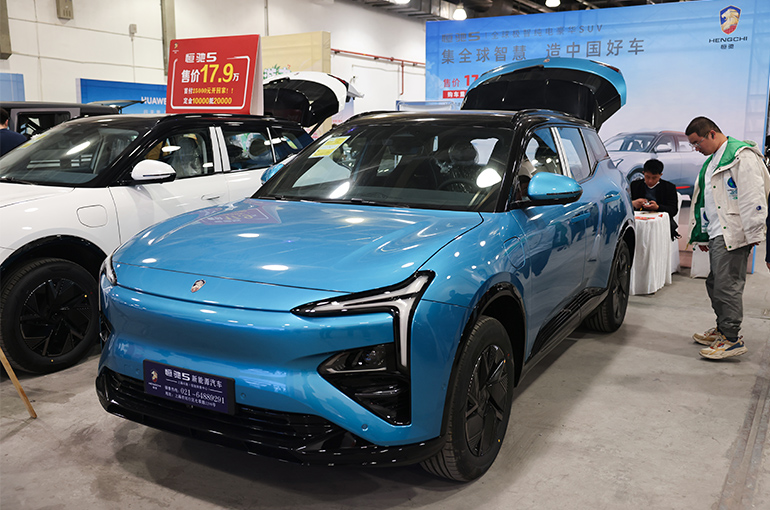 Evergrande NEV Jumps as Net Loss Narrows by 56%, Mostly Due to Property Sales
Evergrande NEV Jumps as Net Loss Narrows by 56%, Mostly Due to Property Sales(Yicai) March 28 -- Shares of Evergrande New Energy Vehicle Group surged after the car unit of struggling property giant China Evergrande Group managed to trim its net loss by more than half last year from the year before, even though mostly because of property sales.
Hong Kong-listed Evergrande NEV [HKG: 0708] jumped by 5.4 percent to close at HKD0.30 (4 US cents), still more than three-quarters lower than the price logged a year ago.
Revenue surged by 10 times to CNY1.3 billion (USD185 million) last year from 2022 due to rising car and property sales, the seller of Hengchi 5 sport-utility vehicles wrote in its annual report released yesterday. However, the biggest part of the sum came from property sales as the company boosted such revenue by CNY1.1 billion, making up more than four-fifths of the total. Meanwhile, sales of automobiles and auto parts more than doubled to CNY146 million (USD20.2 million).
The future of the aspiring carmaker is uncertain as financial distress could halt plans for more models after a Hong Kong court in late January ordered the troubled parent to be liquidated, marking the largest bankruptcy of a Hong Kong-listed developer.
Evergrance NEV said yesterday that whether the group can survive will depend on its ability to complete restructuring and financing plans to generate enough operating cash flow and get access to additional sources of financing.
The manufacturer counted CNY34.9 billion (USD4.8 billion) in total assets as of Dec. 31, last year, while liabilities tallied more than double that at CNY72.5 billion. Its cumulative loss reached CNY110.8 billion (USD15.3 billion), up by 12 percent, and net loss attributable to shareholders declined by 45 percent to CNY37.7 billion. Cash and cash equivalents fell by 59 percent to CNY129 million.
The group is actively negotiating with banks, other financial institutions, and third parties to roll over loans and debts due Dec. 31, 2024, it said, adding that the company has recently furloughed some staff and the Tianjin plant has suspended production due to its tight financial conditions.
Editor: Emmi Laine